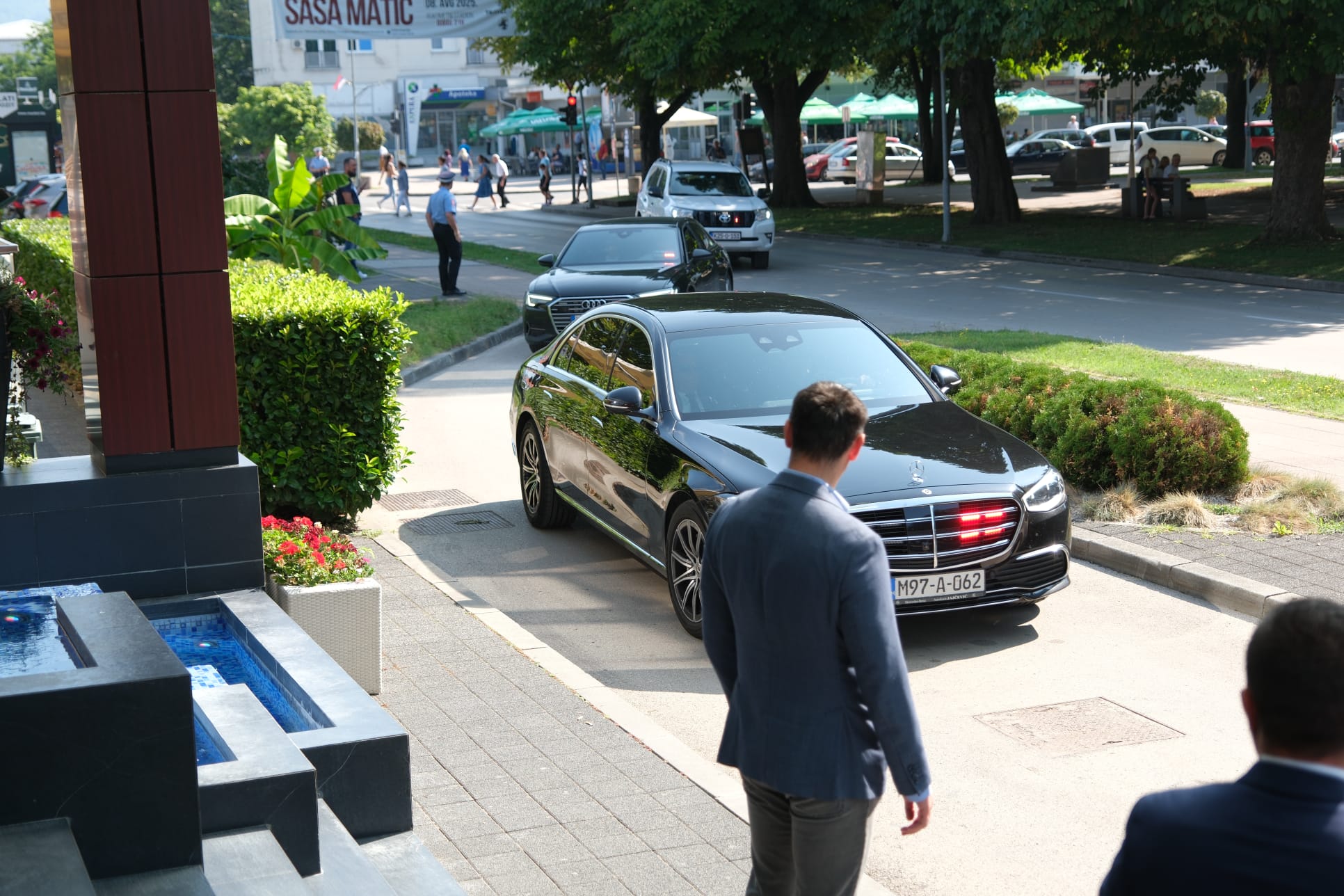This post is also available in: Bosnian
That’s the question Bosnians have been asking since August 18, when a decision by the Central Election Commission, CEC, to strip Milorad Dodik of the Republika Srpska presidency entered into force.
A week on, Dodik is still enjoying the perks of the job and exercising its powers.
He continues to travel in the presidential Mercedes under armed escort and when he attended a session of the parliament in Banja Luka on August 22, he was introduced as ‘president’ of the predominantly Serb-populated entity.
Milan Blagojevic, a professor of constitutional law, said Dodik’s defiance of the law actually goes back much further – to June 12, when the appeals verdict in his court case became final, though the verdict was only announced on August 1.
“In criminal proceedings, when an appeal is filed and the Appellate Chamber issues a verdict, the date of the appellate verdict is, according to the law, the date when the verdict becomes final; the appellate verdict in the criminal case against Dodik was indisputably issued on June 12, 2025,” he said. On that day, “the measure prohibiting him from performing the function of president of the republic also became final”.
Since then, however, Dodik has signed into law three pieces of legislation adopted by the Republika Srpska assembly, issued presidential awards and handed to a family in need the keys to a new apartment.
Far more worrying, however, is his vow to block elections to replace him and call a referendum on the entity’s secession from Bosnia.
Dodik’s cabinet secretary, Jelena Pajic Bastinac, said he remains president, at least until delivery of the second-instance verdict of the state court.
“Given that we have not received the verdict, the CEC decision is not enforceable,” said Pajic Bastinac.
“There is no possibility for it to be applied from June 12 because neither President Milorad Dodik, nor Milos Lukic, as the second defendant, were even aware that the verdict had been issued. It was a closed session of the Chamber, during which discussions and voting took place, and we can only speak of its enforceability once it becomes known, once it is officially delivered to the person it concerns.”
“We cannot act in accordance with it, without knowing it exists. So, only when someone delivers a document, or it is delivered to them properly, as prescribed by law, with a return receipt so the court has proof it was delivered, can we discuss everything that such a decision produces, i.e. its consequences.”
Former president?

Dodik arriving at the Presidential Palace in Banja Luka. Photo: Detektor
In a late-night vote on Friday, Republika Srpska lawmakers voted in favour of calling a referendum asking people if they accept the state court’s verdict convicting Dodik of failing to comply with an order issued by High Representative Christian Schmidt, the international peace overseer in Bosnia.
Besides the ban on holding the presidency, Dodik was also sentenced to a year in prison, later replaced by a fine of close to 19,000 euros.
Opposition MPs have begun referring to Dodik as ‘former president’, but they remain in a minority next to Dodik’s Alliance of Independent Social Democrats, SDSD, and its governing allies.
Republika Srpska Deputy President Camil Durakovic, a Bosniak, said that on the day the CEC announced it was revoking Dodik’s mandate, August 6, the president’s cabinet took away Durakovic’s official car and replaced it with a “technically defective vehicle, a much older vehicle”.
Dodik, meanwhile, continues to drive around in the presidential Mercedes, protected by armed police.
“These institutions are still being put at his disposal, starting with the Ministry of Interior of the Republika Srpska, which continues to provide protection to a person who does not have a presidential mandate, to the cabinet and the government, which put public resources at his disposal,” Durakovic told BIRN.
“This is now a question of the legal system – whether it exists at all and in what way?”
The CEC did not respond to a request for comment.
Political analyst Velizar Antic said that without any “real power or strength” at the state level to punish Dodik’s behaviour, there is every possibility he will continue behaving as president until elections are eventually held.
That, however, would fly in the face of the Bosnian constitution and that of the Republika Srpska itself, exposing Dodik to potentially multiple new criminal charges and possible imprisonment.
“That’s why I’m not sure he’s willing to take such a risk, and I believe he will ultimately accept early elections for the new president,” Antic told BIRN.
